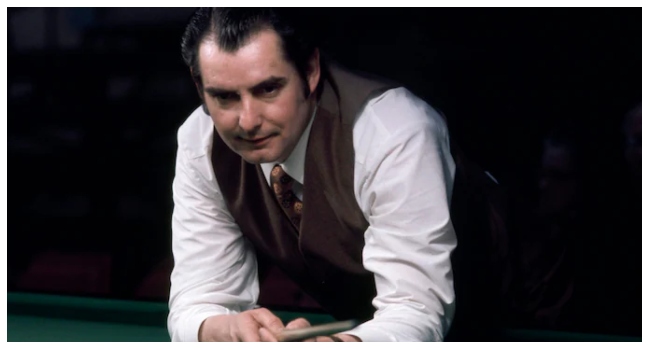Former world champion Ray Reardon, a coal miner who dominated snooker in the 1970s, died at the age of 91.
Welshman Reardon was previously diagnosed with cancer and died on Friday night, his wife Carol said on Saturday.
“Ray Reardon, widely regarded as one of the greatest snooker players ever and a six-time world champion, has died at the age of 91,” a World Snooker Tour statement said.
Jimmy White, one of snooker’s most prominent players, stated on X: “I’m saddened to hear my very dear buddy Ray Reardon has died.
“A total class act who was incredibly courteous to me as I was making my way through the game. A game-changing player. “Mate, rest in peace.”
Reardon won six world titles between 1970 and 1978, and was awarded an MBE in the 1985 Queen’s Birthday Honours.
Nicknamed ‘Dracula’ after appearing in a cape, top hat, and red silk jacket during a session of the 1974 World Championship final, Reardon rose to notoriety as snooker became popular in Britain as a result of the Pot Black television show.
“Someone decided the outfit made me look like Dracula, and that name stuck to me more than most,” Reardon told me.
He had a long-running rivalry with the flamboyant Alex Higgins, culminating in a dramatic 18-15 defeat in the 1982 World Championship final.
The former world number one worked as a coal miner and a police officer for eight years before becoming a snooker sensation.
He was fortunate to survive a mining catastrophe in which a 12-foot girder and a shower of rubble collapsed on him while he was digging a pit lane, trapping him for three hours.
“My ordeal had left me looking and feeling a bit like a dirty dishcloth, and when the blood started to circulate in my numb legs, it had me screaming in pain for a moment or so, but they gave me sips of water, and soon I was all right,” according to his memoir.
Reardon retired in 1991 at the age of 58, although he remained in the snooker scene, serving as a consultant to Ronnie O’Sullivan throughout his 2004 world title run.
The Welsh Open trophy was named in Reardon’s honour in 2016.


